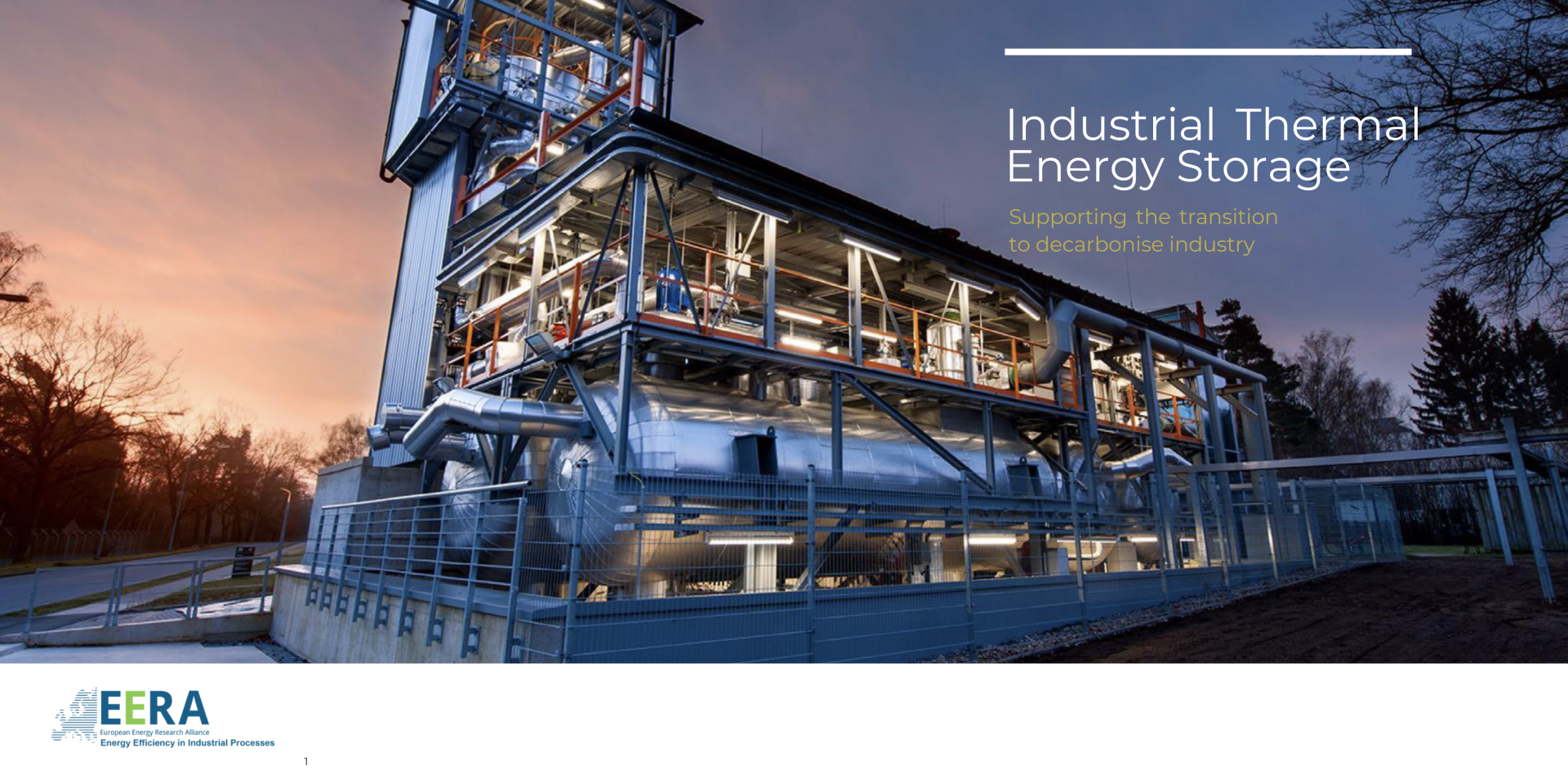A White Paper recently launched identifies that the use of thermal energy storage in industrial processes could reduce carbon emissions across Europe by as much as 513Mt per year.

The White Paper “Industrial Thermal Energy Storage – Supporting the transition to decarbonise industry” has been produced by the European Energy Research Alliance’s Joint Programme on Energy Efficiency in Industrial Processes (EERA JP EEIP), a research alliance which aims to support energy-intensive industry to meet the European net-zero greenhouse gas targets. The Paper has drawn on experts from the UK, Netherlands, Norway, Italy, Spain and Austria who have assessed the impact that this technology could have on existing industry across Europe.
Thermal Energy Storage (TES) utilises the properties of different materials to store and release heat, which can provide a wide range of benefits, such as supporting the efficient use of renewable energy, enabling surplus heat recovery to reduce industrial energy use and decoupling energy supply and demand.
The White Paper, which was led by experts at Durham University, investigated the current usage of TES, the challenges and barriers to further uptake and the commercial and environmental opportunities for its use.
Yvonne van Delft, Coordinator of the EERA JP EEIP, said “One quarter of total final energy consumption in the European Union is consumed by industry. Within that quarter, over 80% is consumed by heating and cooling processes. The continued, wide-scale use of gas, oil, coal, and other fossil fuels for industrial thermal processes leads to an estimated greenhouse gas (GHG) emission of 513 Mt CO2 equivalent per year, 12% of total GHG emissions. Thermal energy storage (TES) can assist in the decarbonisation of industrial heating and cooling, and increase energy system flexibility and security.
The potential for energy efficiency gains in the industrial sector is not given the place it deserves in the recently proposed Energy Efficiency Directive (EED) recast. One of the recommended policy actions is to promote R&D efforts towards specific technology developments that can reduce specific energy consumption needs in industrial processes, like thermal energy storage solutions for peak shaving and better utilisation of fluctuating heat losses (stabilising waste heat supply).”
The White Paper was launched to a global audience at a webinar on 13th December.
The recording of the launching event can be re-watched here.
Further details about Durham Energy Institute can be found here: Durham Energy Institute - Durham University
Further details about the European Energy Research Alliance can be found here: European Energy Research Alliance (EERA)
